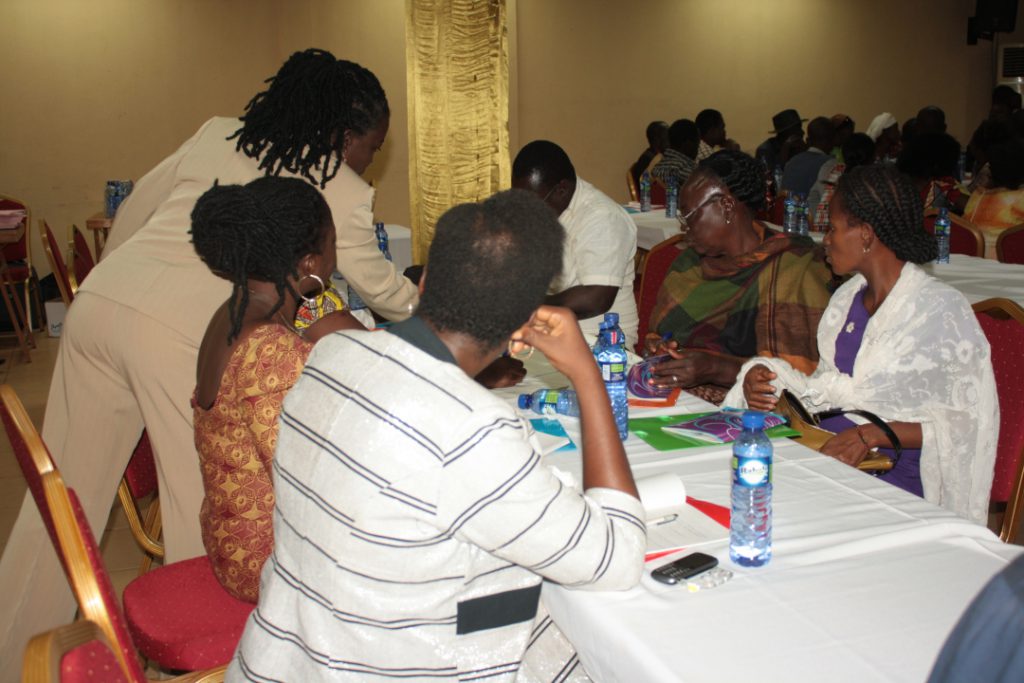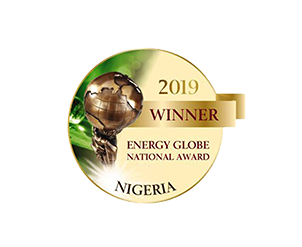
Training of MSMEs on RECP and Industrial Symbiosis
Thanks to Switch Africa Green Project (SAG) entitled: «Enhancing resource productivity and environmental performance of MSMEs in Burkina through the Concept of Industrial Symbiosis», the third training on Resources Efficiency and Cleaner Production (RECP) and Industrial Symbiosis (IS) for the benefit of MSMEs was done on January 26 and 27, 2017, by Women Environmental Programme Burkina Faso (WEP BF), in Ouagadougou.
In Burkina Faso, Micro, small and middle size enterprises (MSMEs) have benefited from a training on Industrial Symbiosis (IS) and Resources Efficiency and Cleaner Production (RECP). As a matter of fact, Women Environmental Programme Burkina Faso (WEP BF) has been implementing this project in Burkina Faso by training the MSMES on enhancing their productivity while protecting environment. During the training, to start with, participants benefited from a presentation on green economy, its importance and usefulness for the development of Burkina Faso. Moreover, they learned about some of the dangerous factors which block the development and well-being of the population throughout the world. Among those factors, climate change and its causes, destruction of forest and biodiversity, the lack of water and natural resources, etc. all the participants were all invited to take into account Green Economy in their daily activities.
The next step was the training in Resources Efficiency and Cleaner Production (RECP). WEP BF team demonstrated that it is possible for each enterprise to value the waste and made them resources for themselves or to be sold to other enterprises. To achieve this objective, they must keep separately solid waste from liquid and by putting apart each category of resource such as metal, plastic, wood, liquid, etc. By doing so, enterprises reduce the cost of waste removal as well as its treatment. Participants were also advised to put off the light, fan and air conditioning when they are not using them, in order to save energy and money. The trainers also demonstrated that an enterprise can benefit from reduction up to: 42% on energy consumption, 50% on waste, 30% on water and 35% gas emission.
To achieve such results, enterprises must always count and quantify the resources that they reject (waste), identify what make them loss their resources, measure what they lost, in order to determine its cost for the enterprise and for the environment. At this stage, nothing has to be neglected as any lost can be a cause for another one.
For much more commitment in promoting resource efficiency, groups were formed for practical exercises and workshops on RECP.
The last step was the training on Industrial symbiosis which is a system in which two enterprises work together in such a way that the waste produced by one of them are resources for the other one. The process aims at making business more profitable and more efficient while protecting environment as well as training Enterprises in order to make them practise Industrial Symbiosis in their daily activities.
The training was focused on assignments during which participants from identified enterprises were requested to practice at once what they learned in order to appropriate the knowledge and all the tools related to industrial symbiosis. They worked in group and seven (7) teams were formed as far as the mapping, the process and all the steps related to industrial symbiosis in the respective enterprises were concerned.
Industrial Symbiosis has the advantage of improving profit and revenues of enterprises, as well as the resources efficiency and their competitiveness. It also has the advantage of reducing of cost of the production and stimulating. By so doing, industrial symbiosis is an opportunity to go from a linear system to a circular one where the waste from one enterprise become resources for another one.
At the end of the training, WEP-BF visited the enterprises of the participants for a follow-up, aiming among others at reinforcing their network, quickly proceeding with industrial Symbiosis opportunities, knowing how to value their resources, and relying on some experts’ network.
Apart from Burkina Faso, 5 other countries are implementing SAG project: South Africa, Ghana, Mauritius, Kenya, and Uganda.


